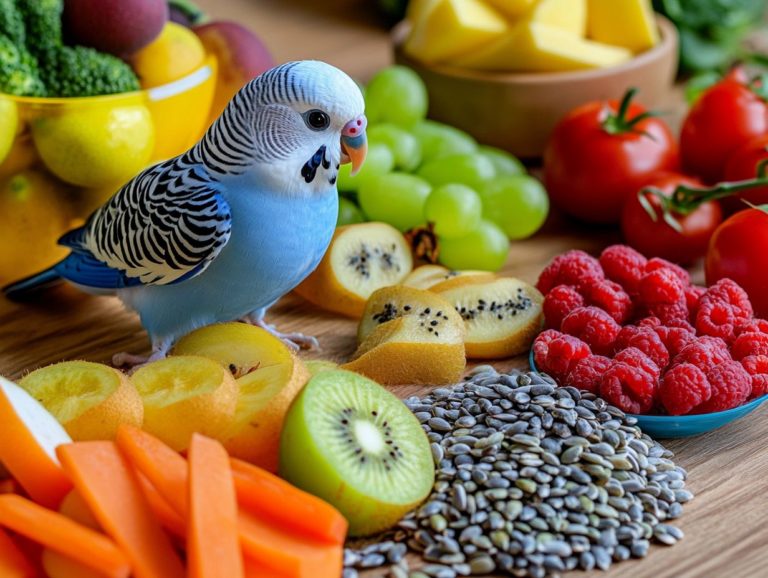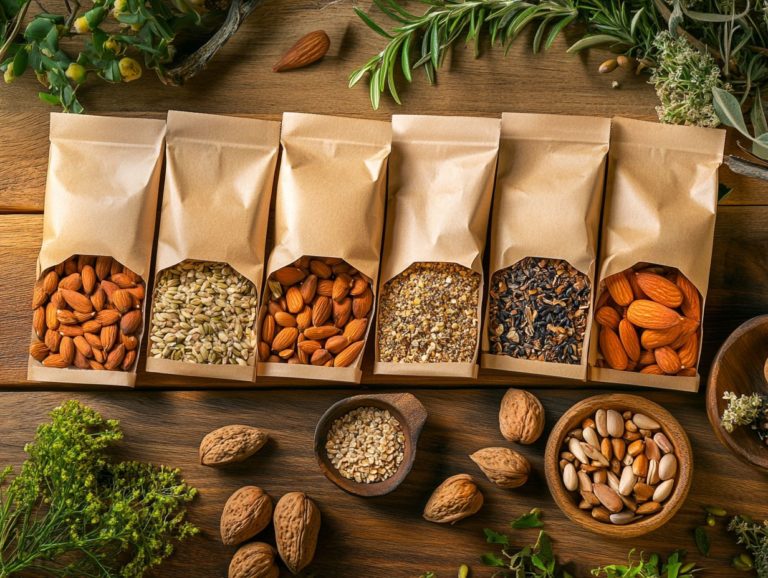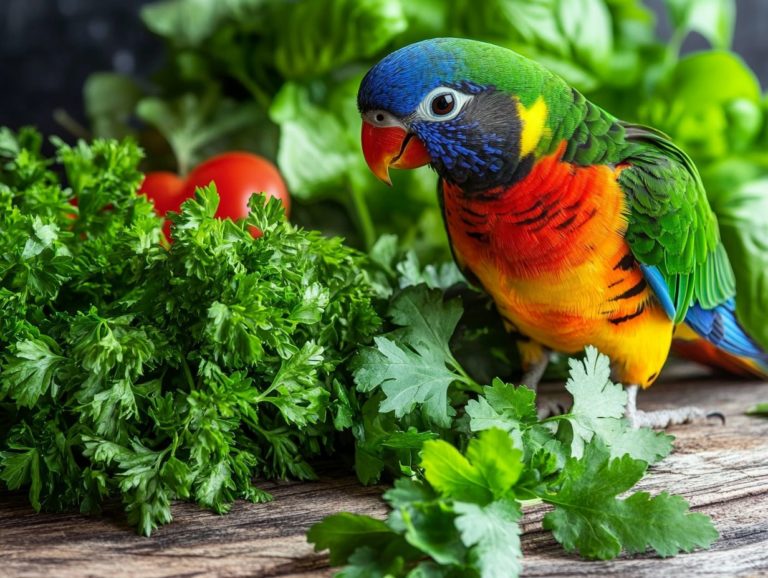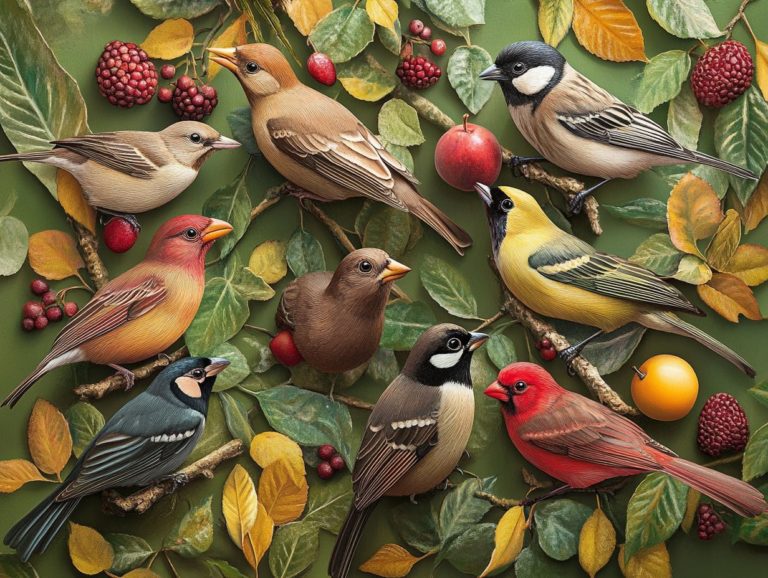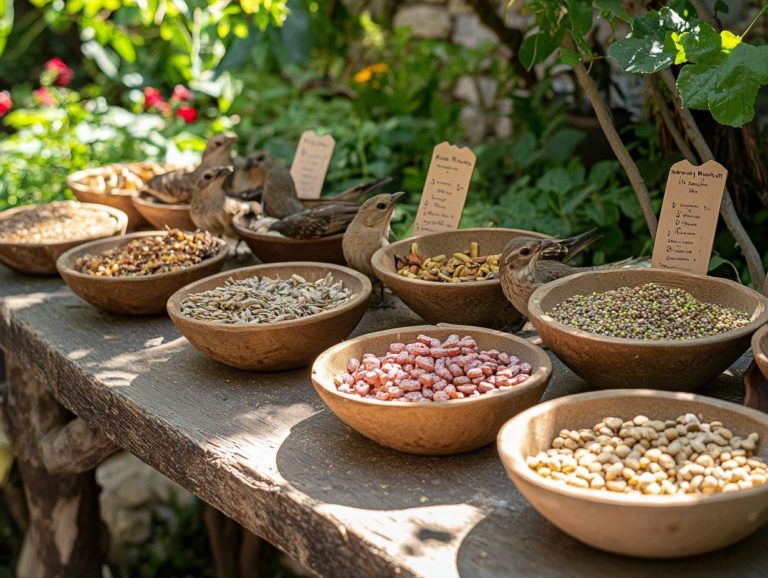How to Avoid Overfeeding Your Bird
Overfeeding your feathered friend may appear harmless, but it can lead to significant health concerns.
This article delves into the concept of overfeeding and the risks it poses to your bird’s well-being. You’ll discover the signs to watch for, explore common causes, and receive practical tips on how to prevent this issue.
We will also explore alternative feeding methods that boost your bird s health and happiness.
Join in to uncover the best practices for responsible bird feeding and ensure your companion thrives.
Contents
- Key Takeaways:
- Understanding Overfeeding in Birds
- Signs of Overfeeding in Birds
- Causes of Overfeeding in Birds
- How to Prevent Overfeeding
- Alternative Feeding Methods
- Frequently Asked Questions
- What is overfeeding and why is it harmful for birds?
- How can I determine the right amount of food to give my bird?
- What are some signs that my bird is being overfed?
- How can I prevent overfeeding my bird?
- What are some healthy snacks I can give my bird to avoid overfeeding?
- What should I do if I suspect my bird is being overfed or experiencing weight gain?
Key Takeaways:
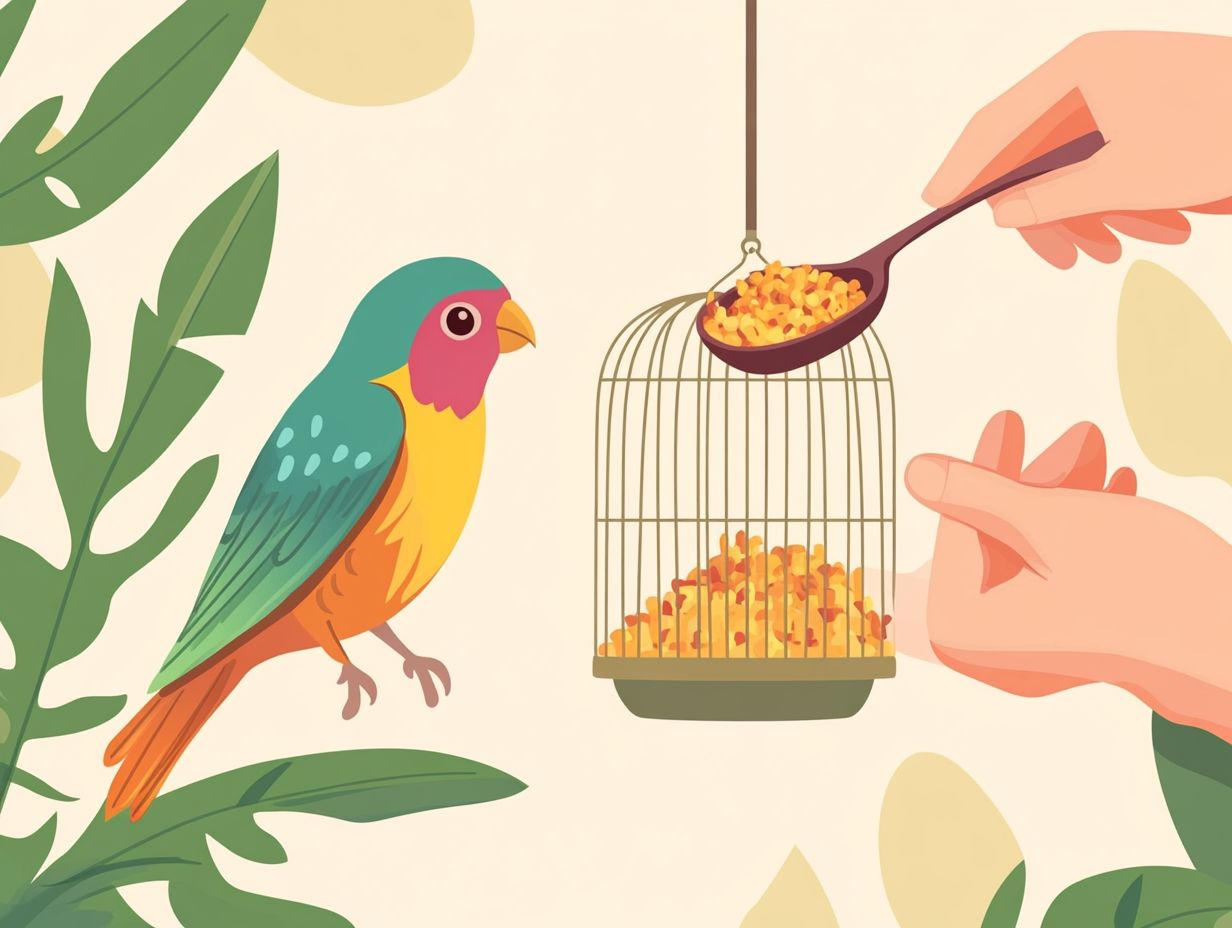
- A proper understanding of overfeeding is crucial for keeping your bird healthy and happy.
- Watch out for physical and behavioral signs of overfeeding, such as noticeable weight gain and lethargy.
- To prevent overfeeding, it is vital to follow best practices for feeding birds and explore alternative methods.
Understanding Overfeeding in Birds
Understanding overfeeding in birds is essential for maintaining a healthy lifestyle for your feathered companions. Implementing preventative care tips for your pet bird, including parrot species such as African Greys and macaws, can make a significant difference.
When birds are overfed, it can lead to serious health issues that disrupt their dietary balance and nutritional needs both of which are vital for their overall well-being.
By recognizing the signs of overfeeding and identifying the factors that contribute to it, you can take exciting steps today to adjust your birds’ specialized diets and feeding habits, ultimately promoting their better health.
What is Overfeeding and Why is it Harmful?
Overfeeding happens when birds consume too much food, leading to an unbalanced diet and a host of potential health issues.
This condition disrupts their ability to absorb the essential nutrients they need for growth and vitality. It can pave the way for serious long-term health problems. When a bird indulges too much, obesity having too much body fat, which can lead to serious health problems can set in. This major concern for avian veterinarians can lead to fat-related complications such as hepatic lipidosis (a serious liver condition) and cardiovascular disease.
Moreover, the added pounds can hinder their natural behaviors, affecting mobility and even reproduction.
Understanding your birds’ proper nutritional needs and maintaining a dietary balance is crucial for anyone looking to ensure a healthy, active lifestyle for their feathered friends.
Signs of Overfeeding in Birds
Recognizing the signs of overfeeding in birds is crucial for their health.
These signs can include physical and behavioral indicators like noticeable weight gain and alterations in their eating habits.
Physical and Behavioral Indicators
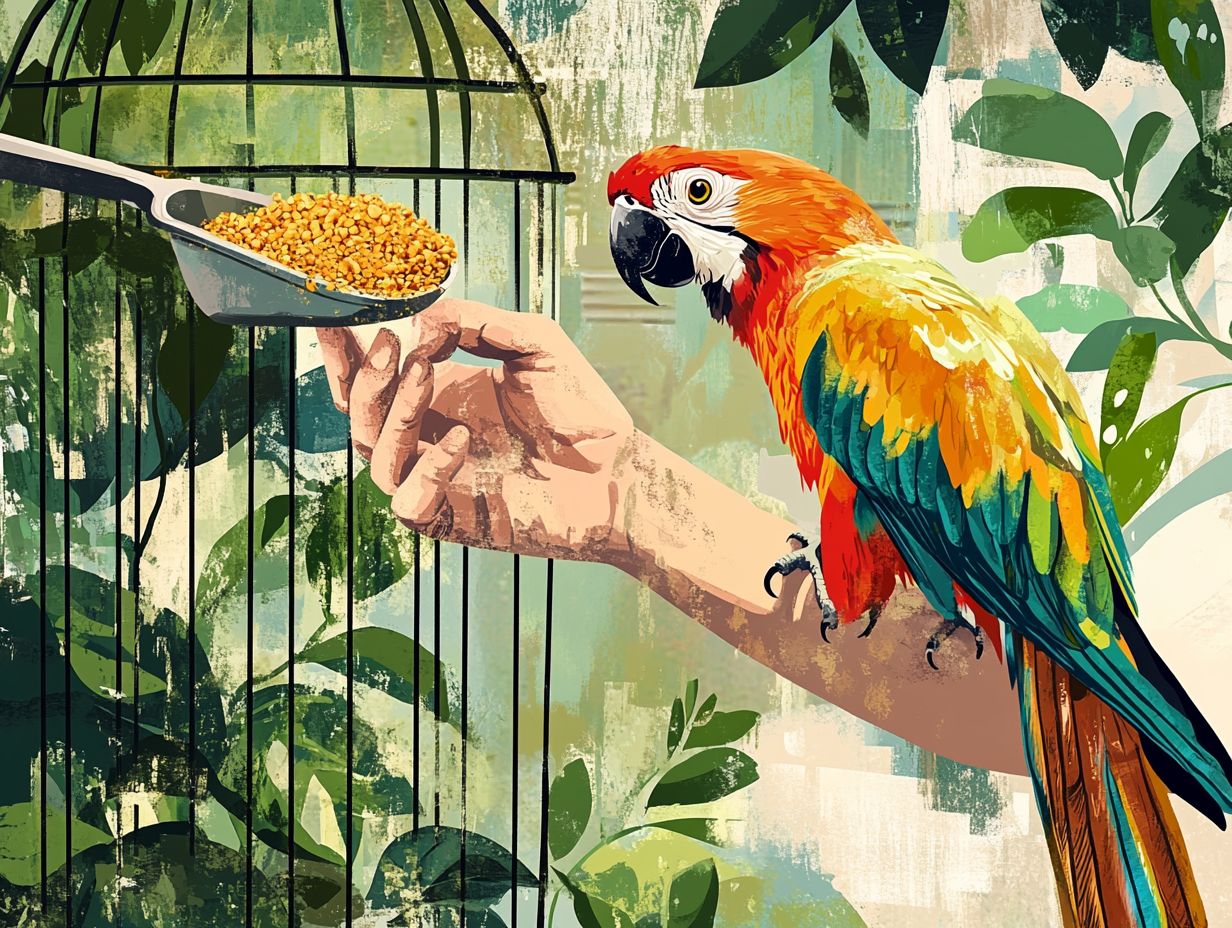
Physical and behavioral indicators are essential for you to identify overfeeding in your birds. Look out for common signs such as noticeable weight gain, lethargy, and changes in feeding habits.
These indicators can vary significantly among different species. Some birds may show a pronounced increase in body size, while others might exhibit a more gradual and subtle change.
For example, your parakeets may become less active and start to shy away from their usual exploratory antics, leading to fewer social interactions. On the other hand, finches might change their eating habits, perhaps eating rapidly or obsessively, often due to an unbalanced diet.
Keep an eye out for signs of overfeeding, like your birds rejecting their regular food in favor of high-calorie treats. This shift in preference deserves your attention. Understanding the best time to feed your pet bird will greatly aid you in maintaining the health and well-being of your feathered companions.
Causes of Overfeeding in Birds
Understanding the causes of overfeeding in birds is crucial for your bird care approach.
Various common triggers and contributing factors, such as the food intake of pet birds and the influences of their environment, can lead to this issue.
By recognizing these elements, you can ensure the well-being of your feathered companions.
Start observing your bird today, and make changes to their diet for a healthier, happier life!
Common Triggers and Factors
Common triggers that lead to overfeeding in birds include environmental conditions, food availability, and different birds liking different foods. Understanding these elements is essential for you as a bird owner or enthusiast, as they can significantly influence feeding habits.
For example, if high-calorie, easily accessible foods are present, your feathered friends might indulge beyond their nutritional needs. Seasonal changes can affect feeding habits, as certain species may overindulge in preparation for migration.
Environmental stressors, such as overcrowding in aviaries or a lack of stimulation, can encourage birds to eat more out of boredom or anxiety. Taking the time to learn about the unique dietary requirements of various species will greatly benefit your birds. You can then craft a balanced feeding regimen that prevents overfeeding while respecting their natural instincts.
How to Prevent Overfeeding
Preventing overfeeding in birds is vital for their health. Start now by using these best practices to keep your birds healthy, and be sure to check out the top mistakes to avoid when feeding your bird, focusing on a balanced diet tailored to their unique nutritional needs and appropriate food ratios.
Best Practices for Feeding Birds
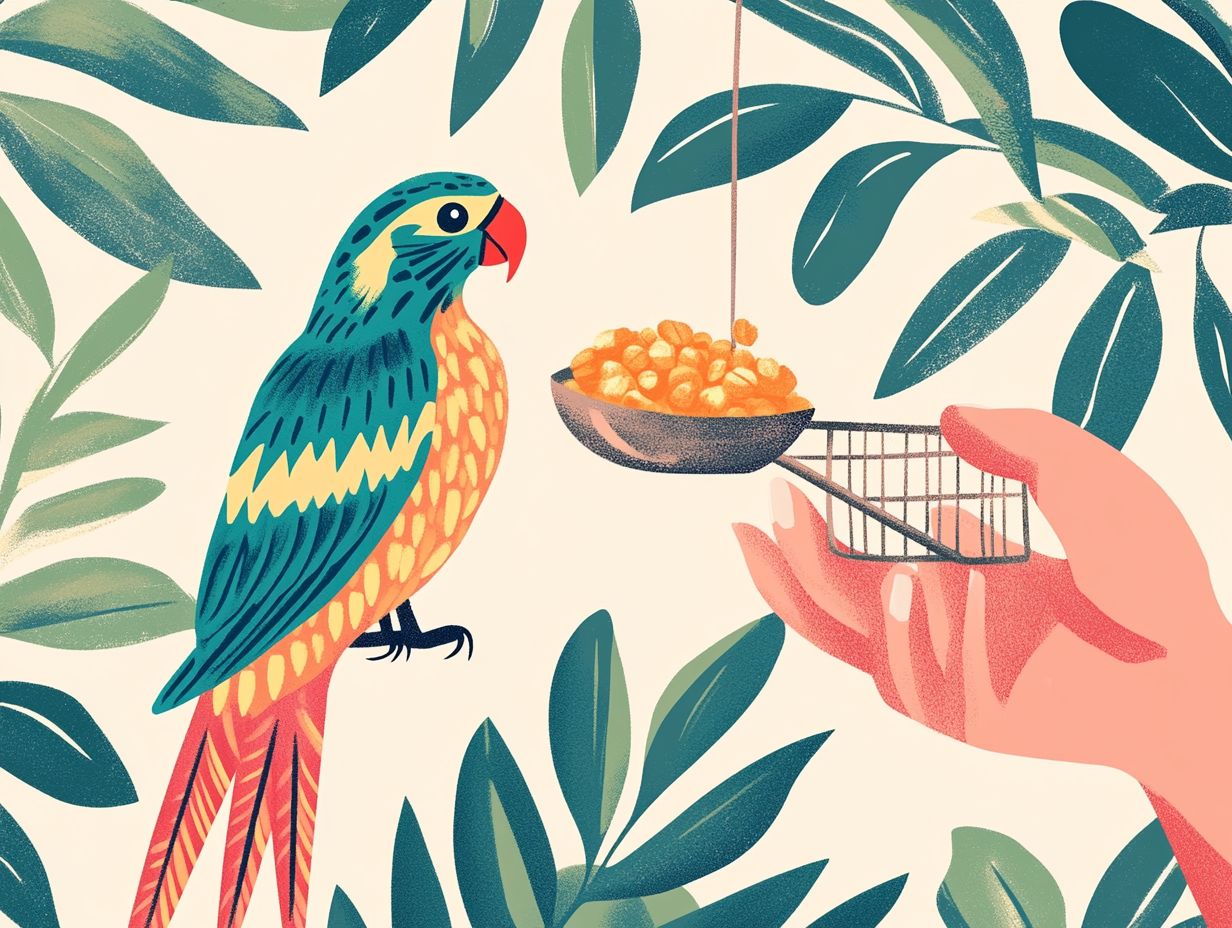
Implementing best practices for feeding birds requires a keen understanding of their nutritional needs, allowing you to create a balanced diet that promotes optimal health. This means paying attention to portion control and ensuring you provide the right quantities of food to minimize waste and prevent health issues.
Explore various foods, such as seeds, fruits, and vegetables, tailored to the specific dietary requirements of different species. While some birds may enjoy seeds, others thrive on a mix of fruits and greens.
Regularly rotating these offerings caters to diverse food preferences, ensuring each bird enjoys a well-rounded diet. Maintaining a clean feeding environment is essential, as it fosters good health and attracts wild birds for frequent visits. By incorporating these thoughtful practices, you can significantly contribute to the overall well-being of your feathered friends.
Alternative Feeding Methods
Discovering new feeding methods will amaze your birds and boost their health! Introducing innovative feeding techniques creates more opportunities for foraging that cater to their specialized dietary needs.
This approach not only supports their health but also enriches their environment, allowing them to thrive in ways that conventional feeding might not offer.
Exploring Different Feeding Techniques
Exploring various feeding techniques opens up engaging and nutritious options for your pet birds while promoting their natural foraging behaviors.
Incorporating methods such as food bowls, foraging toys, and spreadable food products allows you to tailor your approach for different species. For example, smaller birds like parakeets might thrive with foraging toys that encourage them to hunt for hidden treats, while larger parrots appreciate food bowls brimming with a diverse array of fruits and vegetables.
Using spreadable food products can also stimulate interaction during feeding times, supporting their physical health and mental well-being. Together, these techniques enhance the overall quality of life for your pet birds, allowing them to express their natural instincts while enjoying their meals.
Frequently Asked Questions
What is overfeeding and why is it harmful for birds?
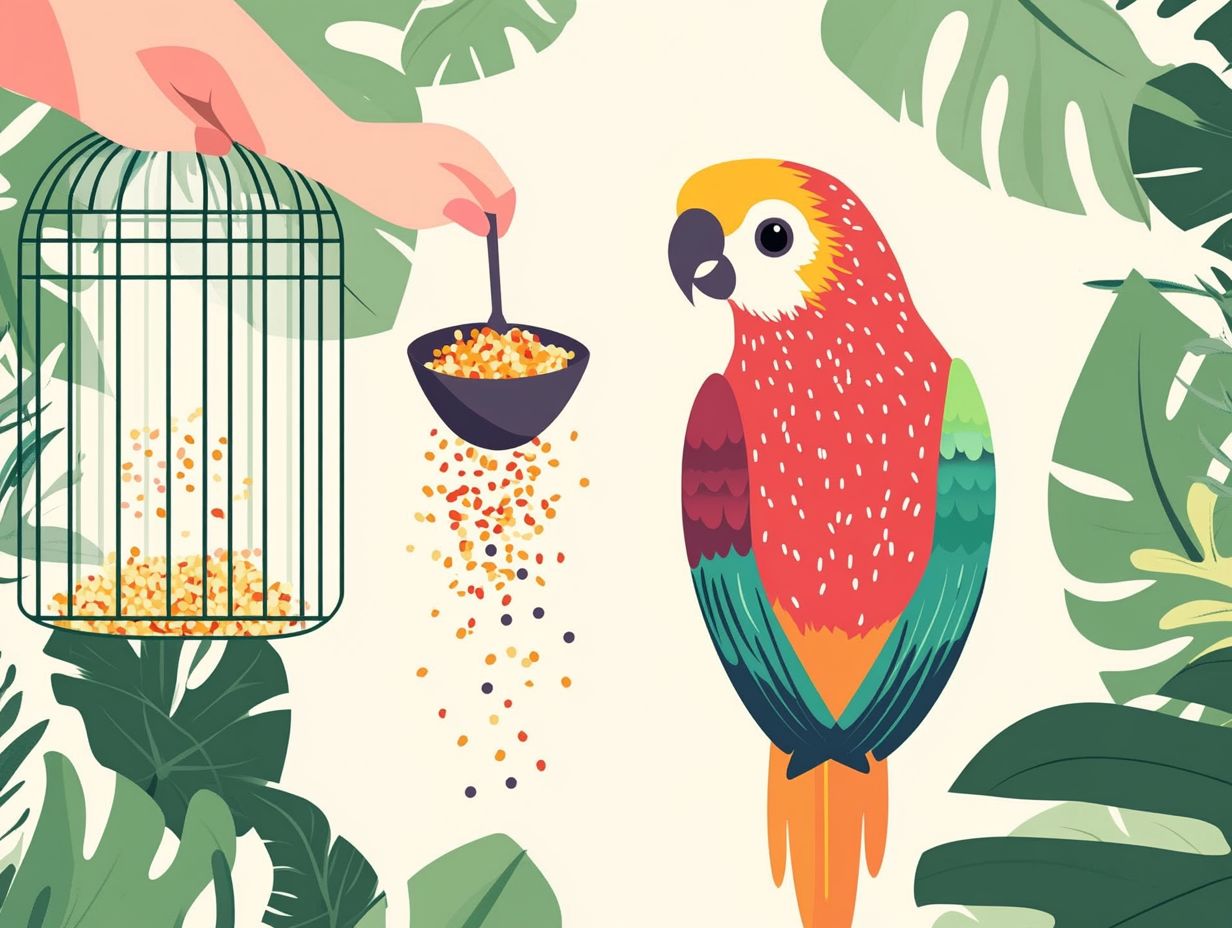
Overfeeding means giving birds too much food, leading to weight gain and health risks. Birds have specific dietary needs, and overfeeding can cause obesity, malnutrition, and other health issues.
How can I determine the right amount of food to give my bird?
The amount of food a bird needs depends on its species, size, and activity level. It is important to consult with a veterinarian or do research on your specific bird’s dietary needs to determine the appropriate amount of food.
What are some signs that my bird is being overfed?
Some signs that your bird may be overfed include excessive weight gain, lethargy, and difficulty moving or flying. You may also notice your bird becoming picky with its food, which can indicate a full stomach.
How can I prevent overfeeding my bird?
Establishing a feeding routine is key to your bird’s health! To ensure proper nutrition, learn how to create a feeding schedule for your bird and avoid giving excessive treats or table scraps, as they can quickly add up. Measure out the appropriate amount of food for each meal and avoid free-feeding.
What are some healthy snacks I can give my bird to avoid overfeeding?
You can enhance your bird’s foraging opportunities by using enrichment toys and fresh vegetables. Incorporating a variety of foods supports your bird s nutritional needs and a healthy lifestyle.
Fresh fruits and vegetables, such as carrots, bell peppers, and apples, are excellent snacks. You can also offer small amounts of sunflower seeds, unsalted nuts, and seeds as treats. Just remember, too many snacks even healthy ones can lead to overfeeding!
What should I do if I suspect my bird is being overfed or experiencing weight gain?
If you notice signs of overfeeding, consult a veterinarian or a bird specialist right away to ensure your bird stays healthy and happy! They can assess your bird’s health and provide advice on how to manage weight issues in pet birds, including its food intake and feeding habits, to promote a healthy weight and prevent health problems.


